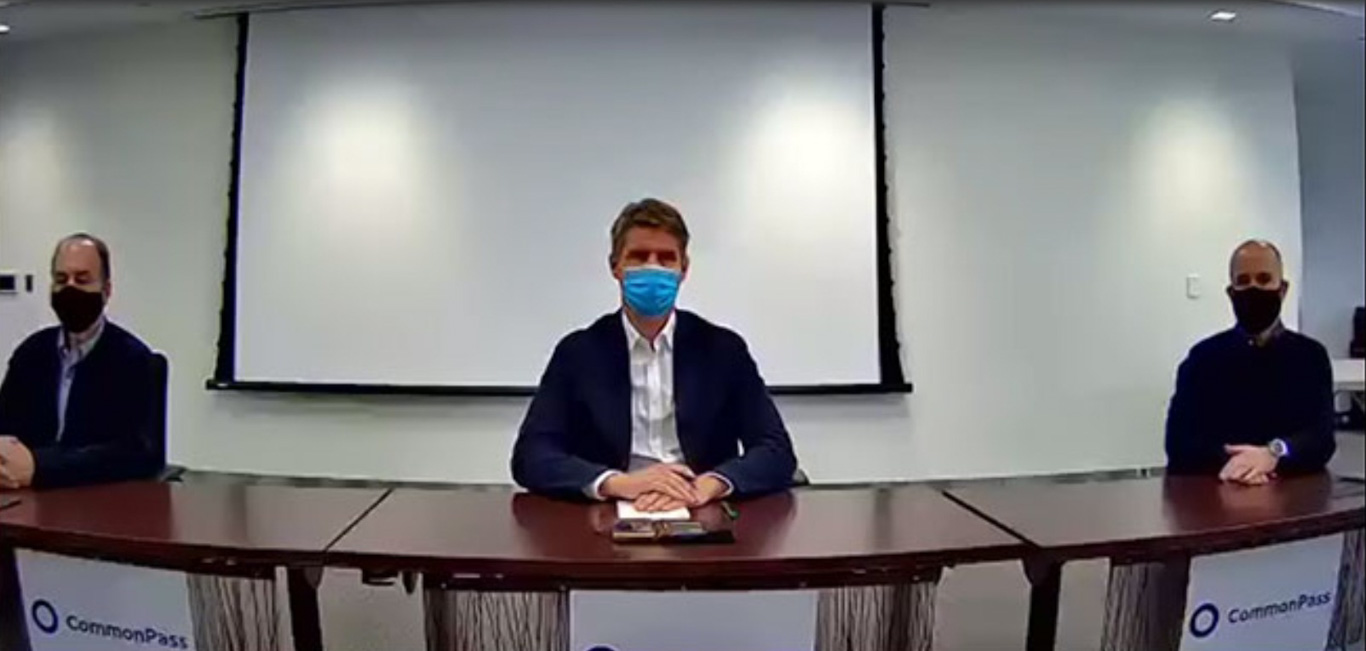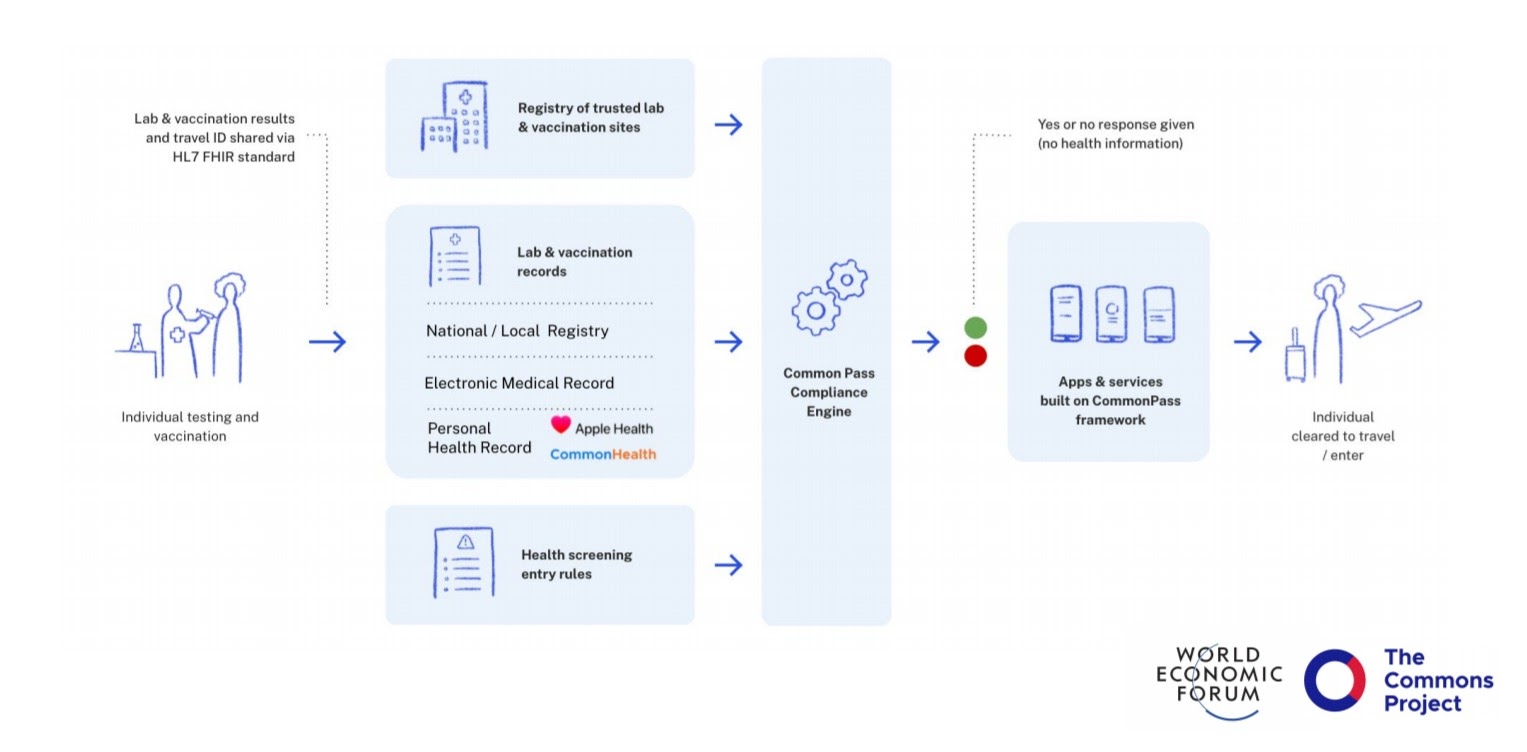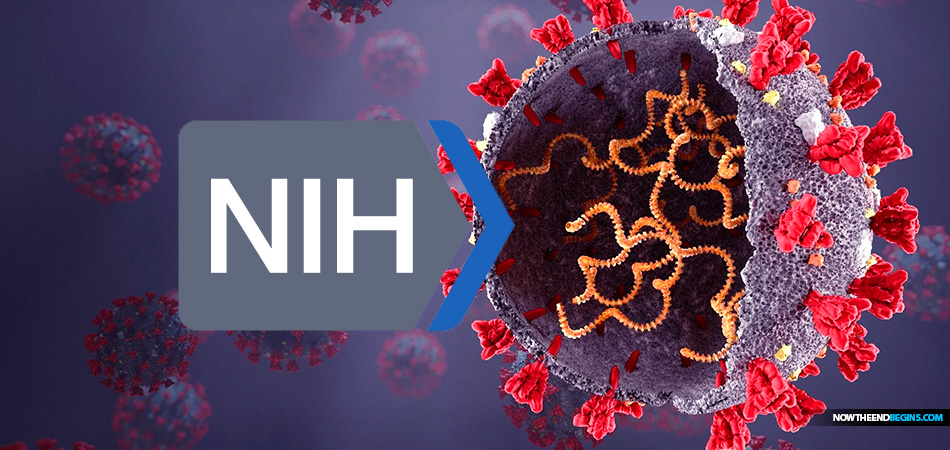New COVID-19 Security Measures Will Make Health a Prerequisite for Travel
by Raul Diego, MintPress News:

Imagine standing at a TSA security checkpoint on your way home for the holidays. You’re getting ready to go through the awkward travel procedures instituted almost immediately after 9/11 when the Transportation and Security Administration (TSA) was created and air travel in the United States morphed into a search and seizure operation with the implied possibility of your detention and interrogation.
TRUTH LIVES on at https://sgtreport.tv/
The initial outrage such expressions of implicit state violence caused early on eventually gave way to begrudging acceptance. But now, a new layer of “security,” that could restrict freedom of movement even further, is being rolled out at several ports of entry in partnership with health technology industry leaders, academic institutions, and government health entities in more than three dozen countries.
A new digital certificate called CommonPass, designed to serve as a clearance mechanism for passengers based on a health diagnosis underwent its first transatlantic test on October 21 under the watchful eye of the Centers for Disease Control (CDC) and U.S. Customs and Border Protection (CBP) at Heathrow Airport in London. There, a group of select participants embarked on United flight 15 to Newark, New Jersey after being screened and tested for COVID-19 at the point of departure in a largely ceremonial exercise that included initiative co-founders, Paul Meyer and Bradley Perkins.

The app’s first trial run took place with much less media fanfare last month on a Cathay Pacific Airways flight from Hong Kong to Singapore and marked the beginning of the CommonPass pilot project launched by The Commons Project non-profit organization in-tandem with the World Economic Forum.
Travel industry insiders claim that CommonPass will allow international travel to resume before a COVID-19 vaccine is made widely available by applying standard methods for certification of lab results and vaccination records of travelers through the CommonPass Framework, based on criteria set by the governments of each port of entry.

A graphic from a Commons Project presser lays out the basics of the CommonPass
J.D. O’Hara, CEO of one of the world’s largest travel services companies and one of the participants at Wednesday’s CommonPass trial run, hailed the app’s ability to “verify health
information in a secure, verified manner,” while Roger Dow of the U.S. Travel Association released a statement praising it for paving a “way forward” for the global economy in the wake of the pandemic.
As the multi-sector, global response to the coronavirus tightens the noose around civil liberties, CommonPass stands out as one of the most appalling and dangerous attacks on basic human rights in the name of public health and is rife with a potential for abuse so great, that it behooves us to find out more about the people and interests behind it.
Feudal revivalists
In medieval times, the ‘commons’ denoted the de facto and collective ownership of land, which peasants used to plow, sow and harvest or raise sheep and cattle. The rise of the land-owning classes in post-Magna Carta Europe, and England in particular, slowly eviscerated this form of communal privilege through the enclosure system, which redistributed the commons to the proto-capitalist class in partnership with the monarchies and create the system of oppressive labor exploitation known as feudalism.
Starting in 1604, the Enclosure Acts of England created legal property rights for land that had belonged to the farmers and shepherds, forming the basis of modern-day capitalism. Today, that scene is being repeated as the Internet, an information ‘commons’ is being carved out by Big Tech and led by organizations like The Commons Project, which avails itself of a name that connotes the total opposite of its purpose.
Co-founders Paul Meyer and Bradley Perkins are the non-profit’s CEO and Chief Medical Officer, respectively. Perkins began his career over thirty years ago at the Center for Disease Control and, for nearly a decade, worked at the RAND corporation’s health care policy division, RAND Health Advisory Board. Meyer, for his part, is a Yale law school graduate, who was writing President Clinton’s speeches years before receiving his graduation diploma from the storied institution. Both have extensive career histories in the fields of health and technology, though in very different areas and with strange bedfellows along the way.
In 2009, Perkins became the Chief Technology Officer for a publicly-traded cross-national operator of hospitals and clinics called Vanguard Health Systems. Vanguard had been established with funding from Morgan Stanley and controlled by the Blackstone Group since 2004, maintaining control all though the company’s IPO in 2011. Two years later, Vanguard was acquired by Tenet Healthcare, creating the third-largest investor-owned hospital company in the United States with a total of 65 hospitals nationwide and over 500 healthcare facilities.

Paul Meyer, center, is pictured in a screenshot of a media briefing touting CommonPass
Besides being one of the biggest healthcare companies in the United States, Tenet is also one of the most notoriously corrupt. The same year it bought Vanguard, it was slapped with a major whistleblower complaint that disclosed the company’s fraudulent practices. That lawsuit resulted in a $514 million settlement. A more recent case involving a conspiracy between Oklahoma orthopedic surgeons at one of its facilities was settled for $66 million in 2019. But, Tenet’s problems go back even further to the early 2000s when fraud and performing unneeded surgeries led to a multitude of lawsuits and even a Senate investigation.
The Vanguard deal marked the end of Perkins’ tenure there, who chose to take a $1.9 million package instead of joining the newly merged conglomerate like its CEO and much of its staff did. He would move on to create a company of his own called Sapiens Data Science; a health tech platform that provides access to “credible scientifically validated data algorithms” and looks to create a “new revolutionary health ecosystem.”
Meyer’s background is more complicated, and his arrival on the healthcare scene runs through different channels linked to American intelligence cover operations dating back to NATO’s war in Kosovo and the former Yugoslavia during the early Clinton years. It is his involvement with an infamous human-trafficking outfit known as the International Rescue Committee or IRC, that should be cause for concern given his role in The Commons Project and flagship CommonPass app.



